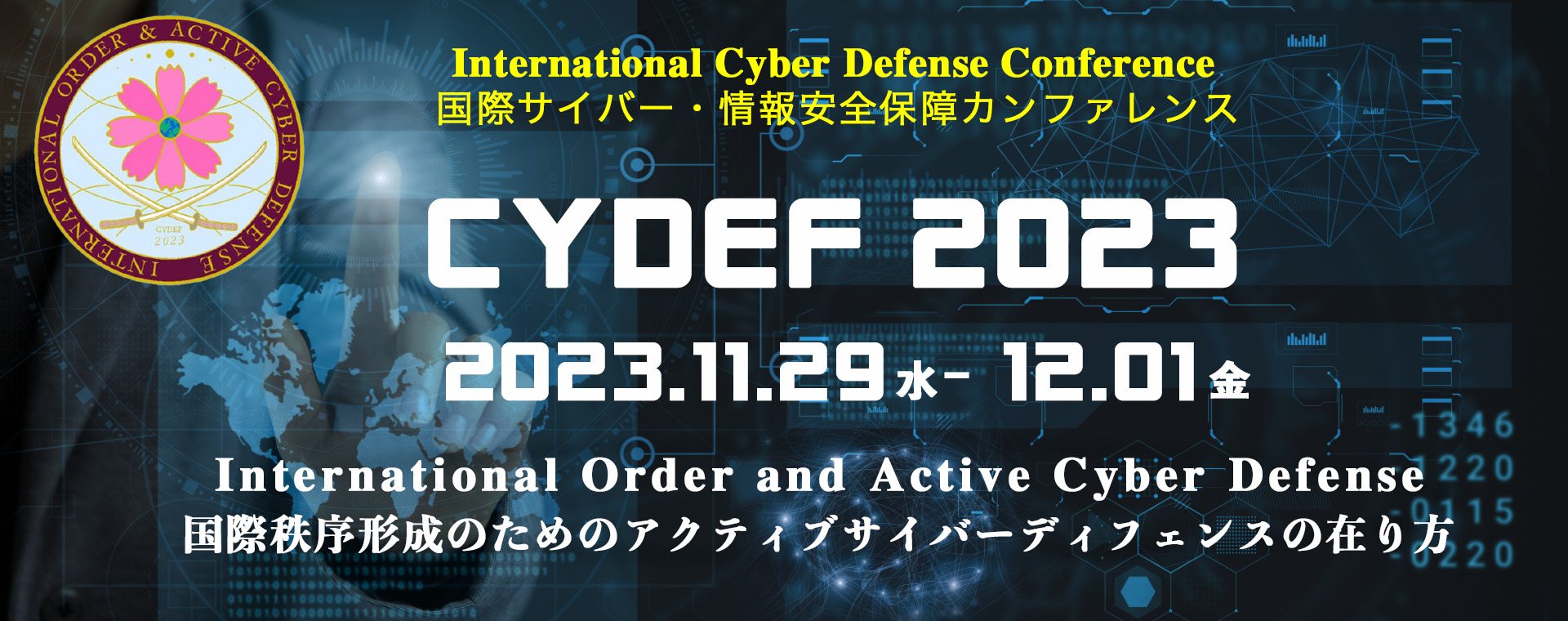
Dec. 4 to 31, 2023, on-demand recorded video CYDEF 2023 was provided
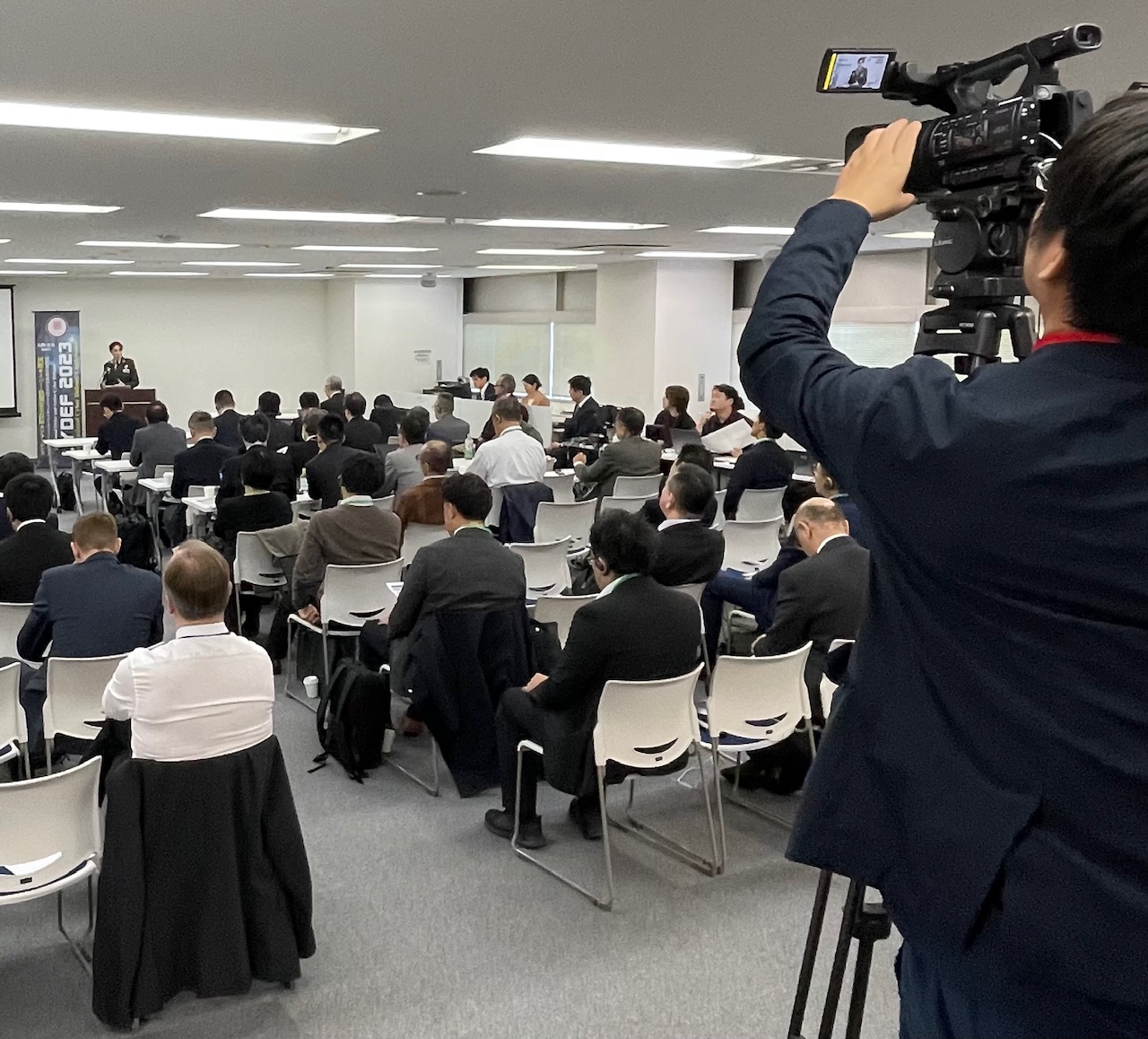 |
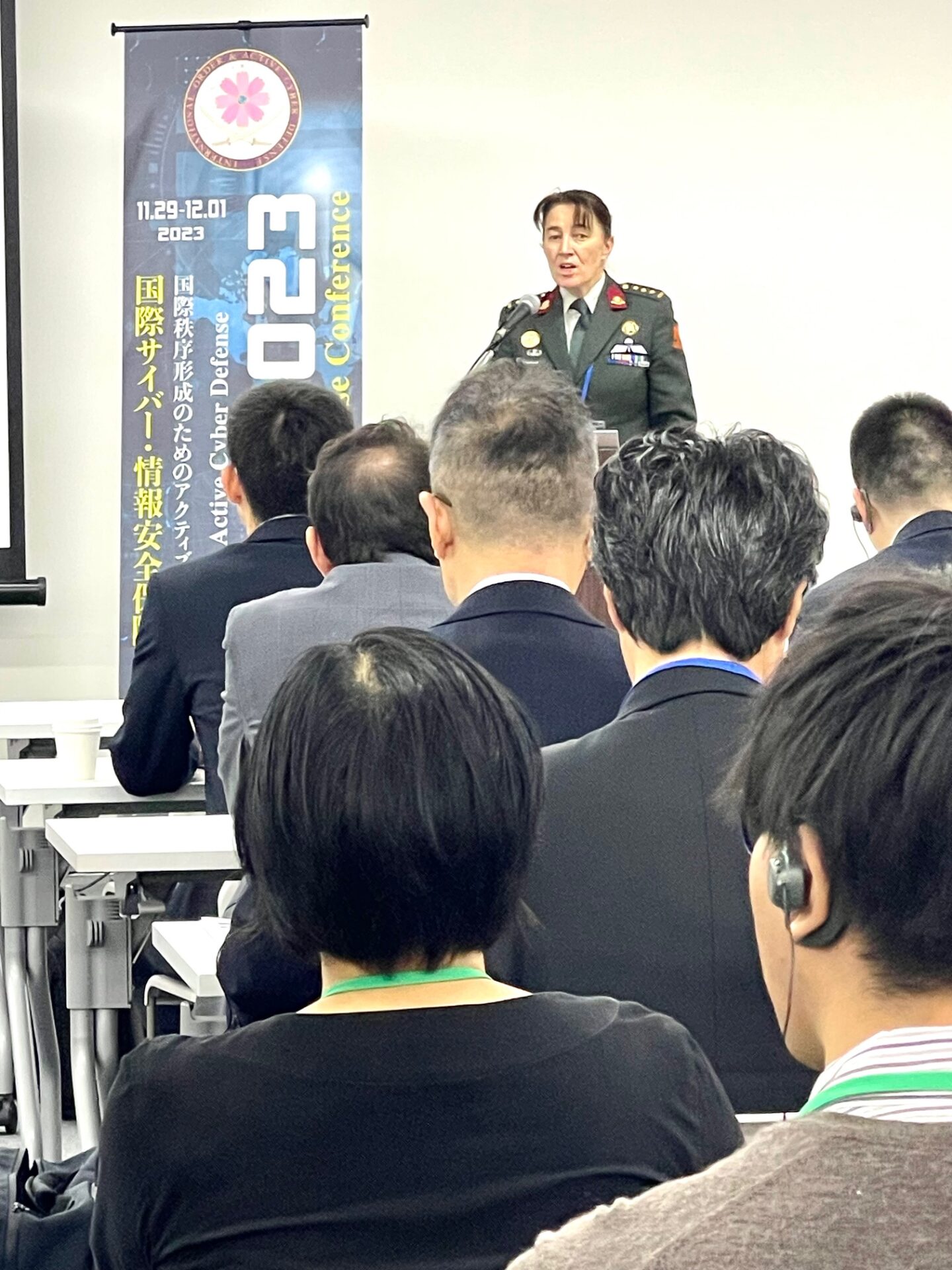 | 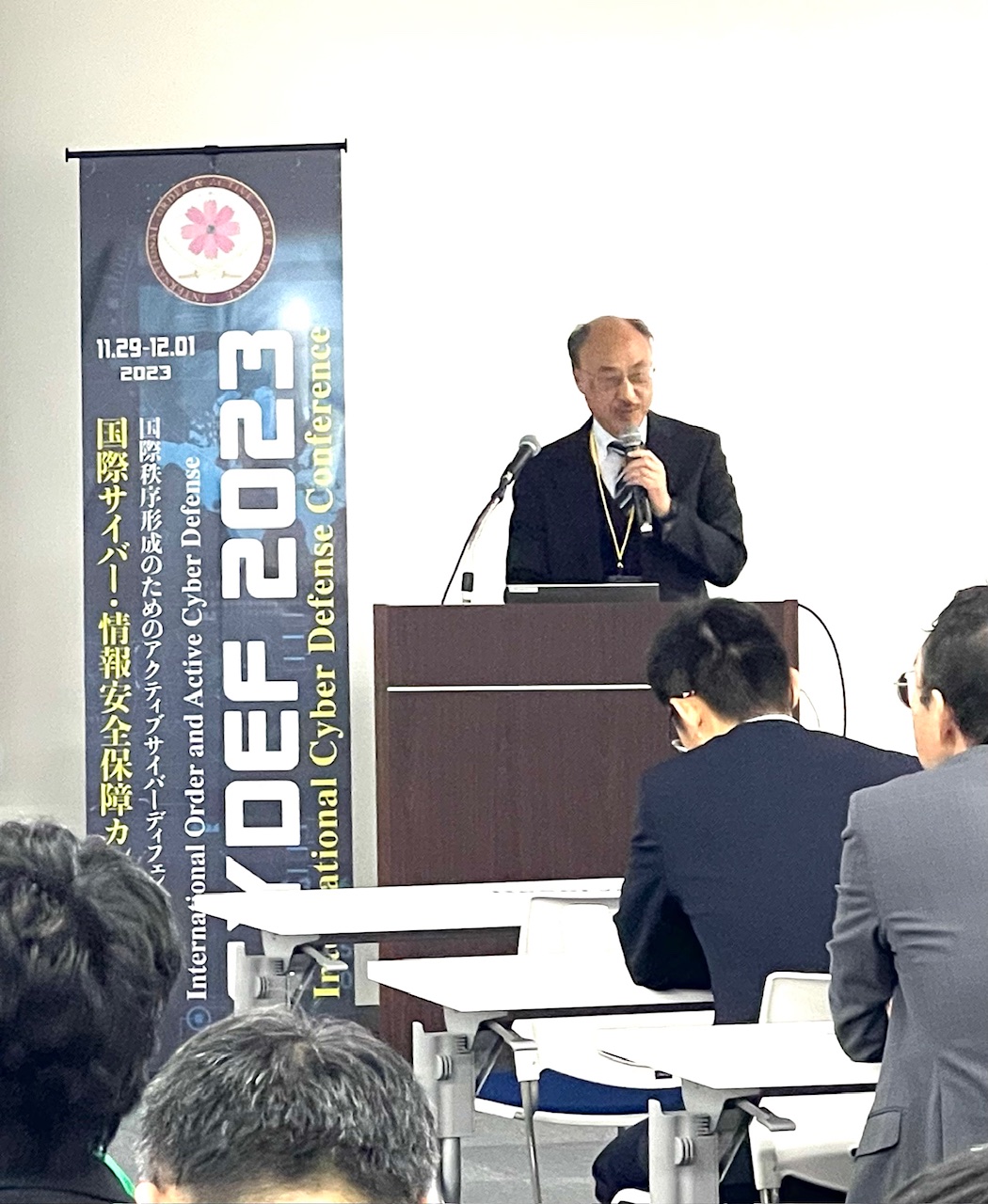 | 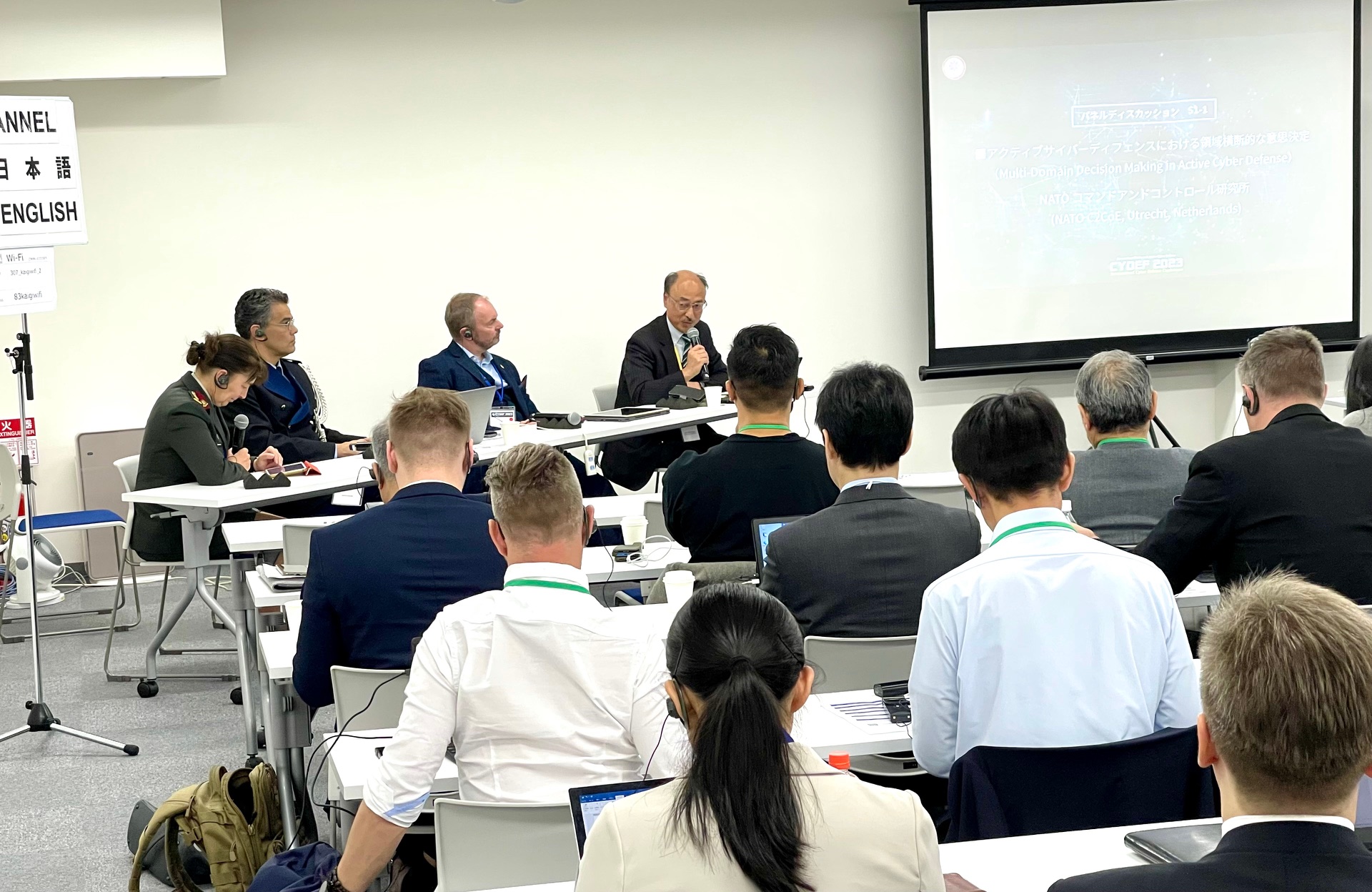 |
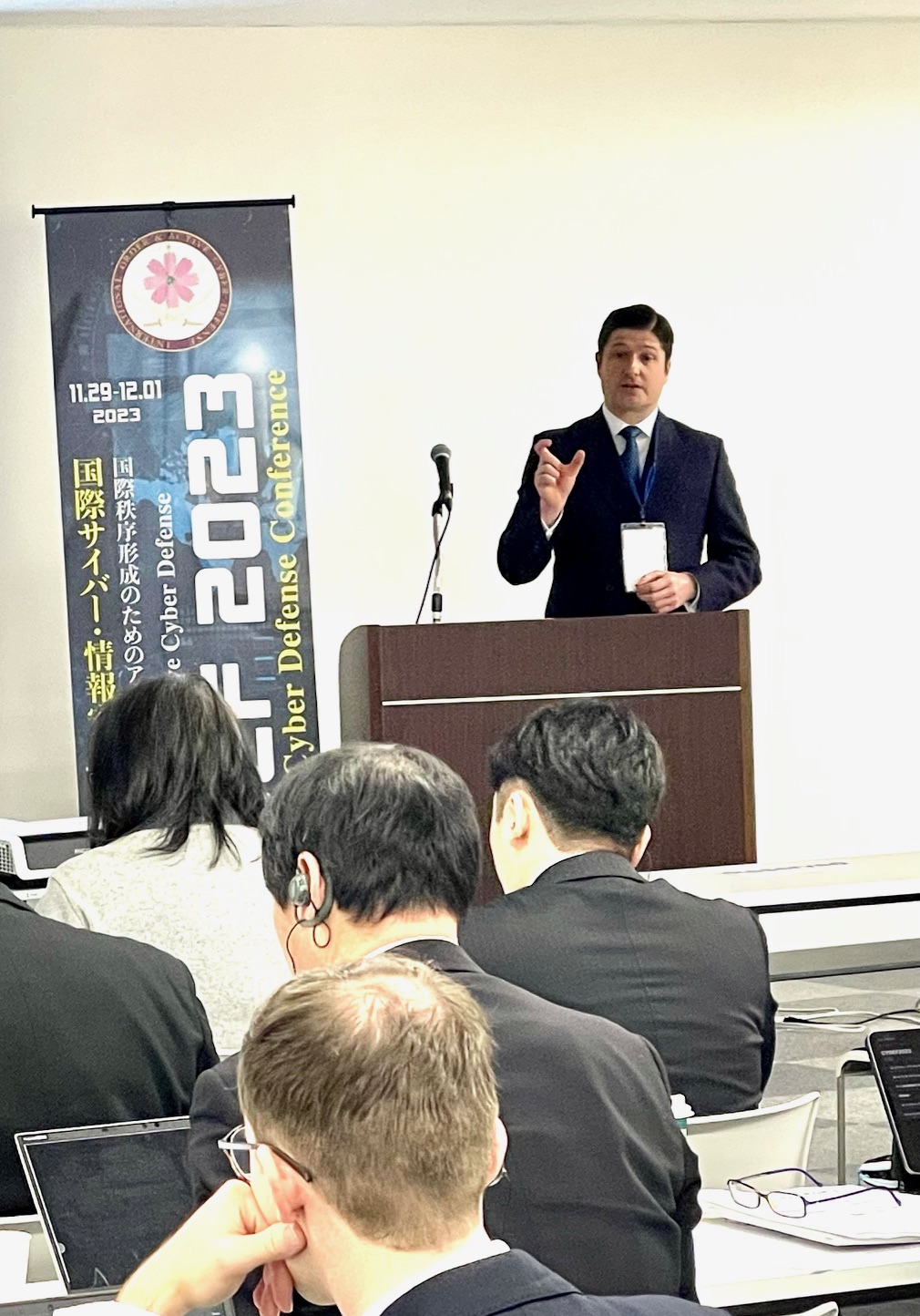 | 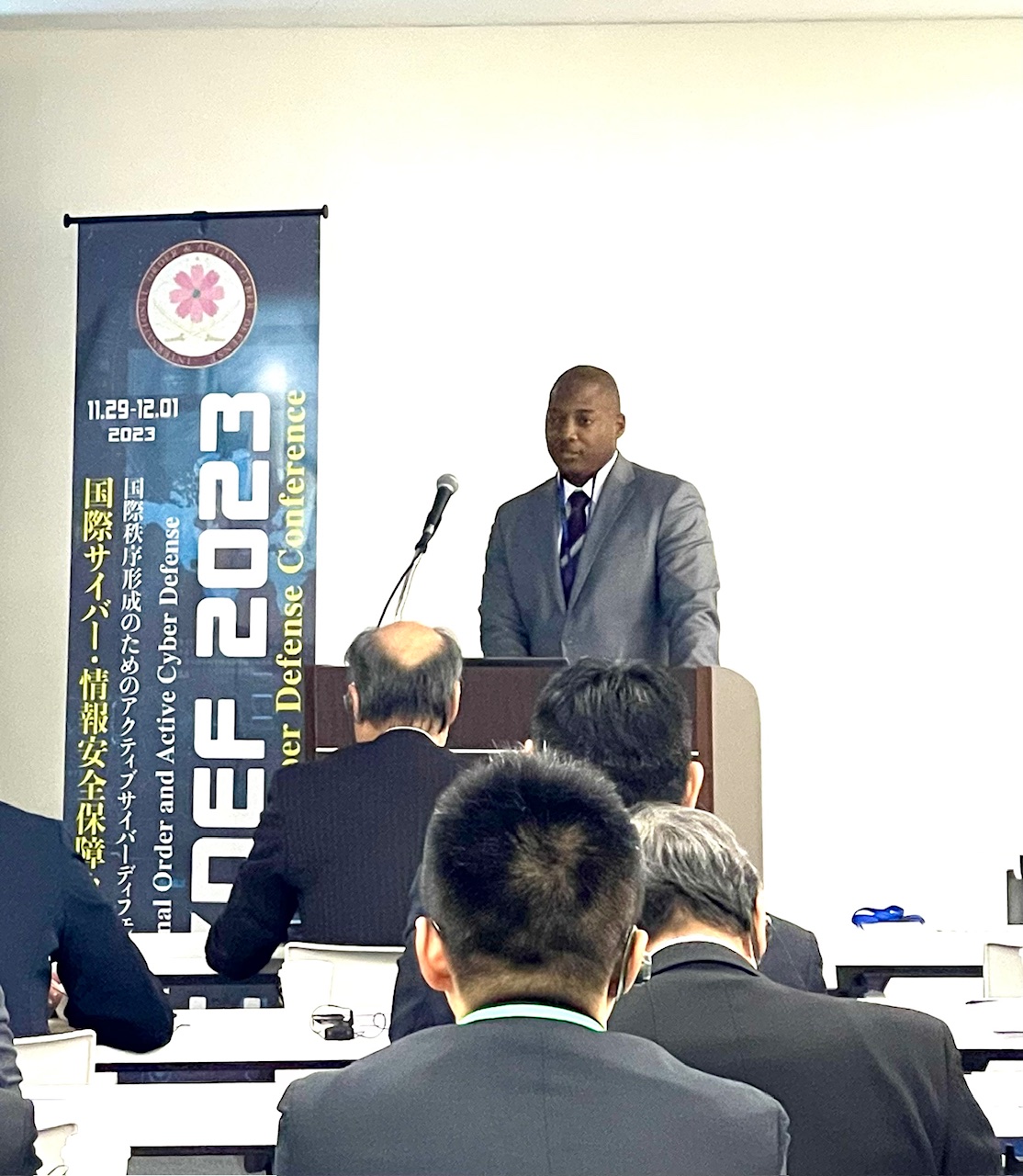 | 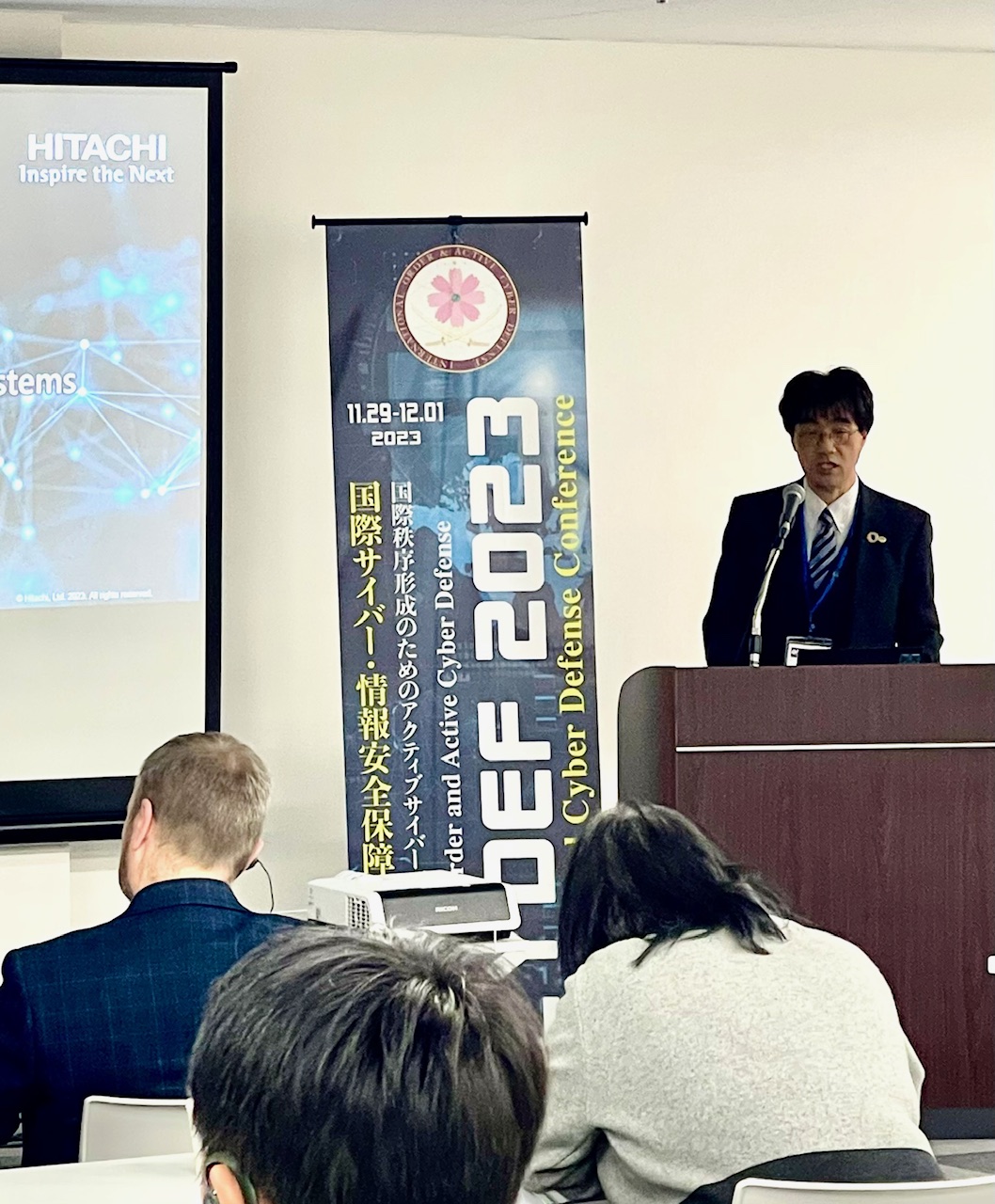 |
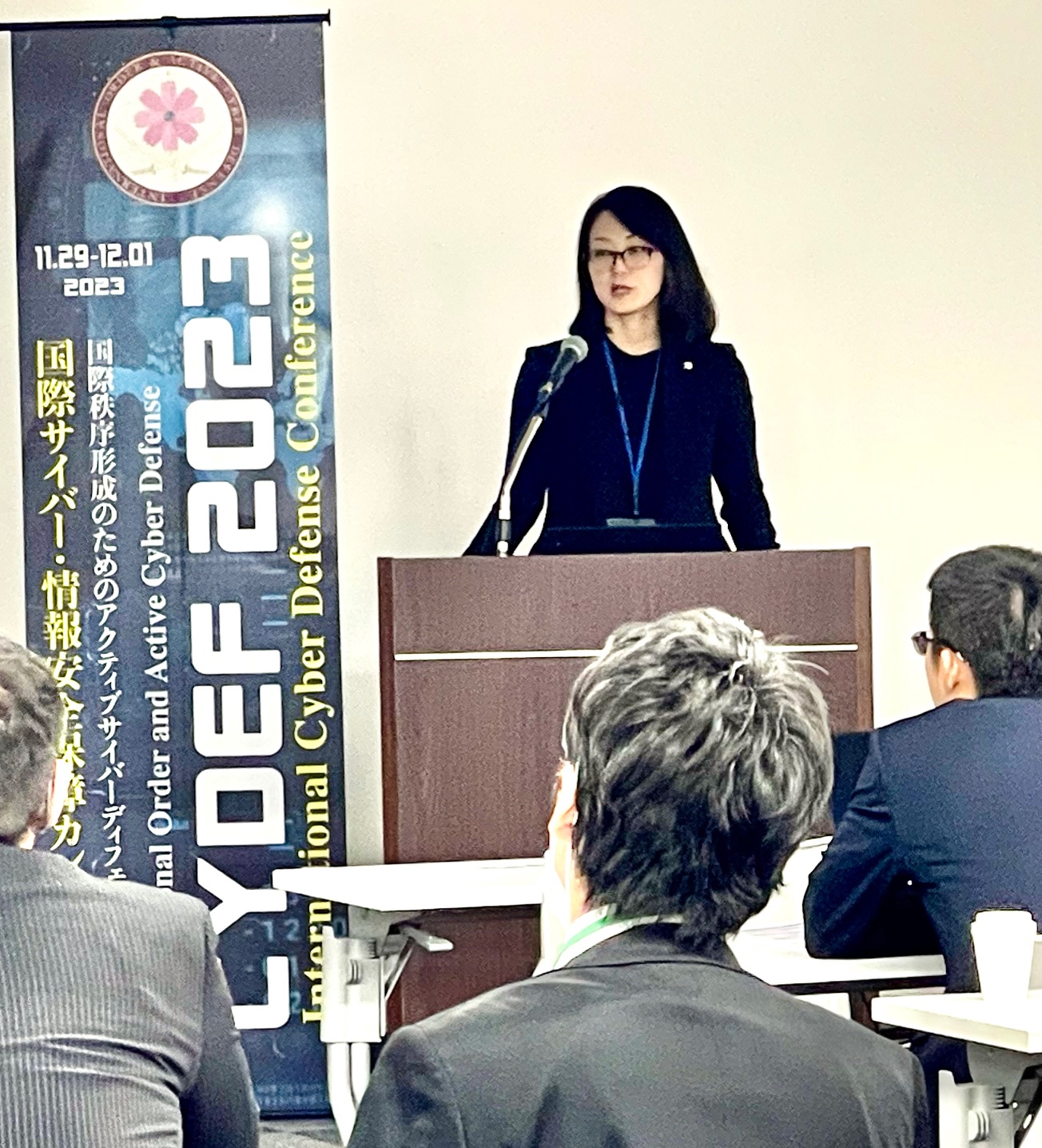 | 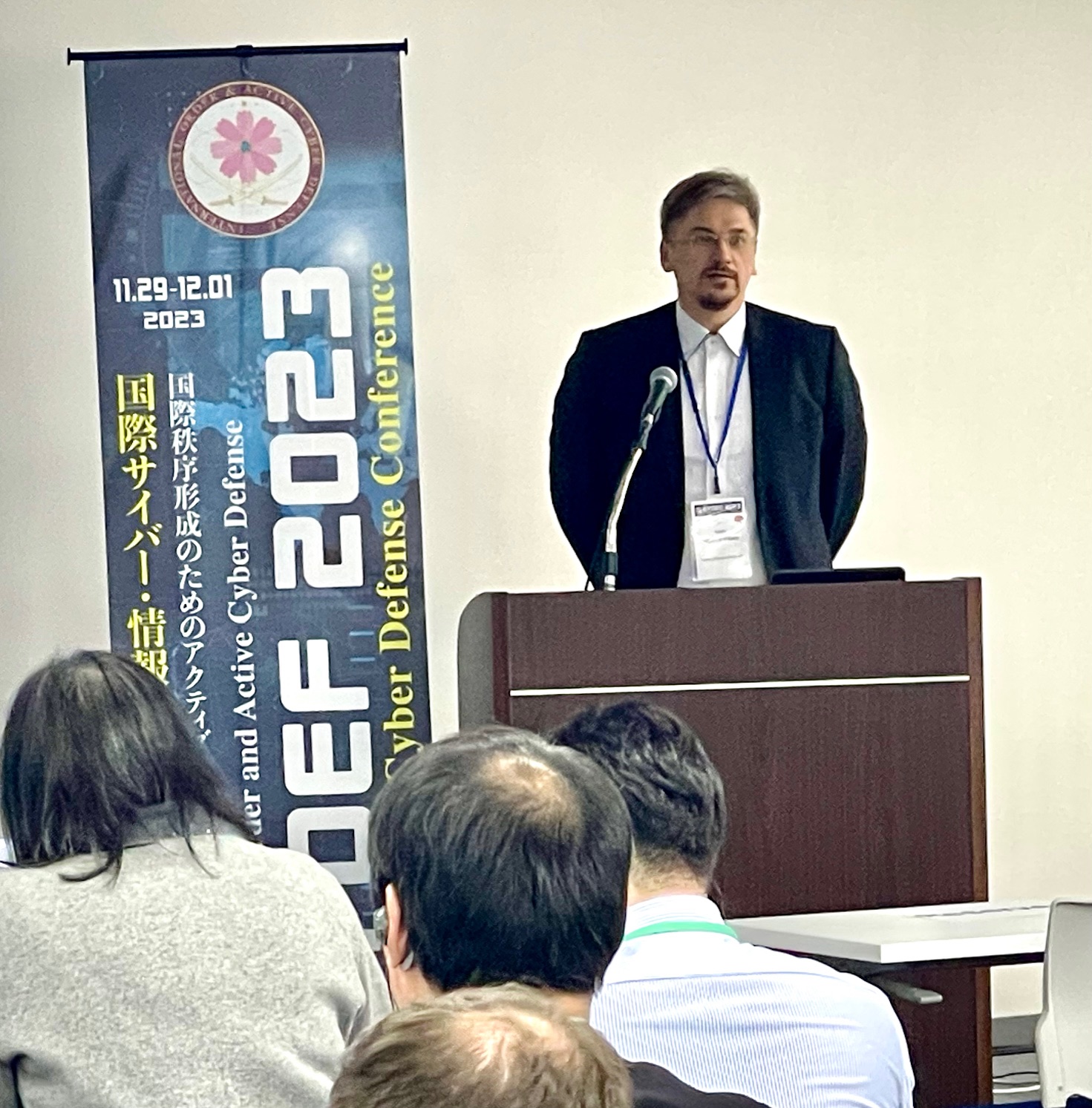 | 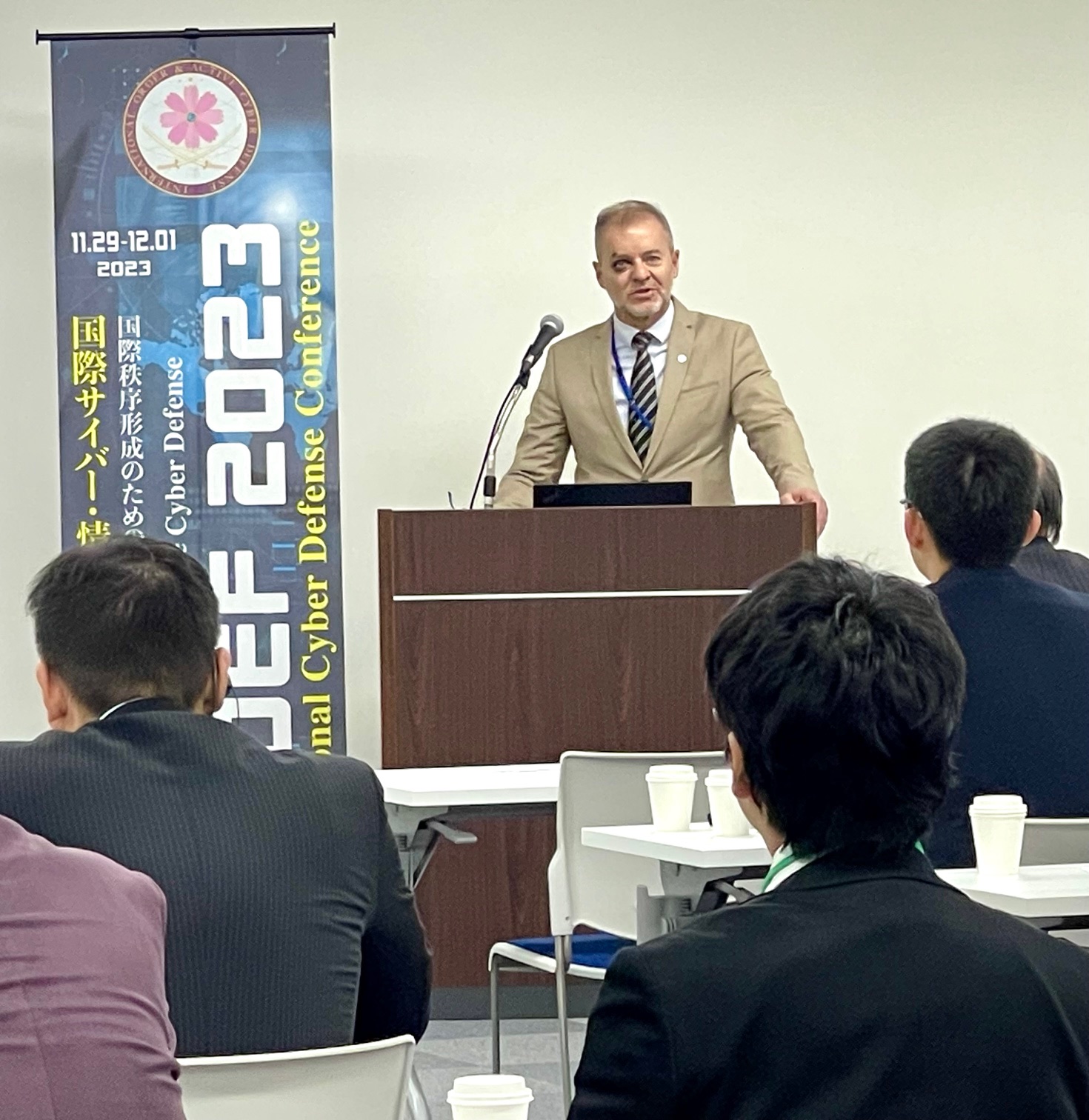 | 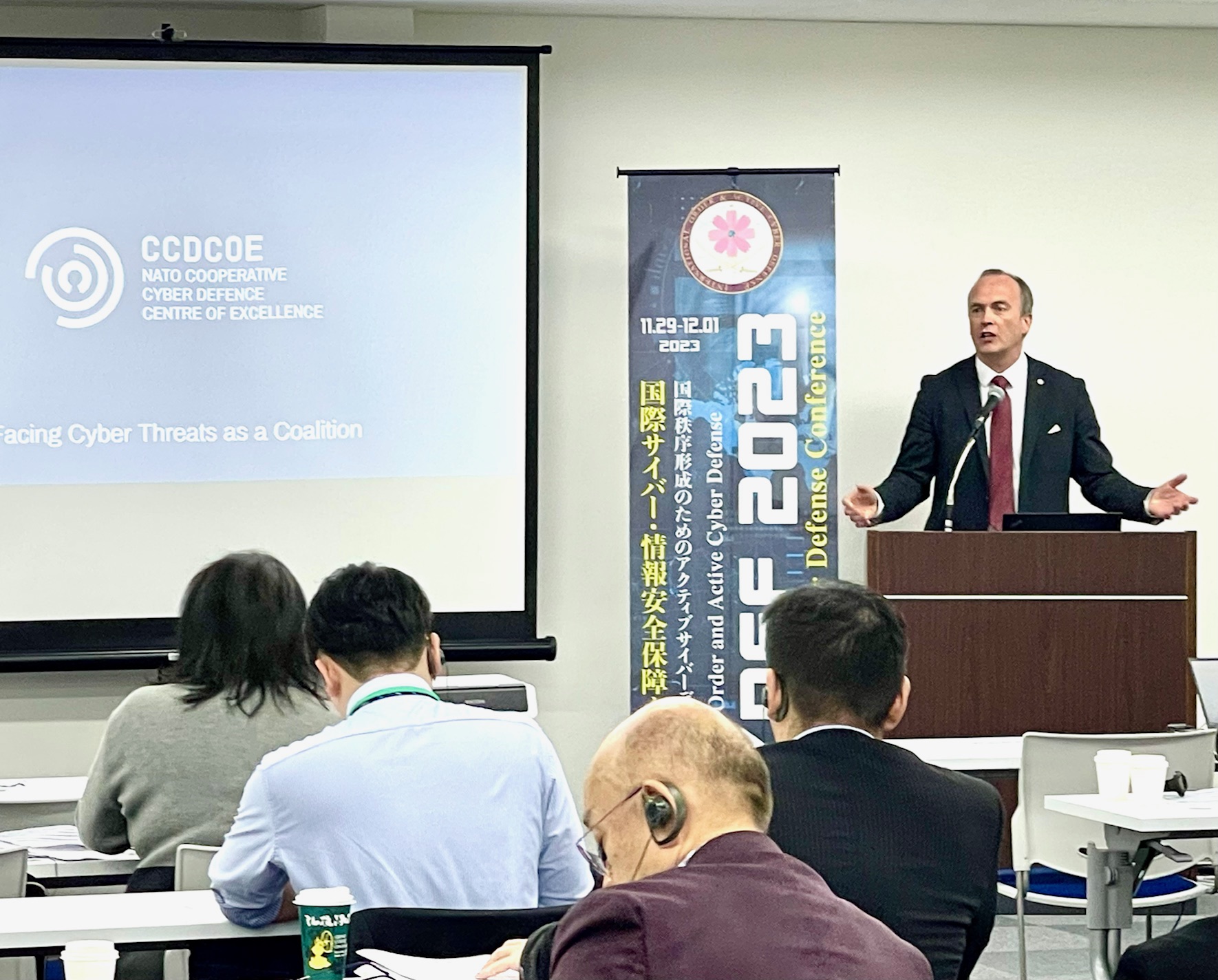 |
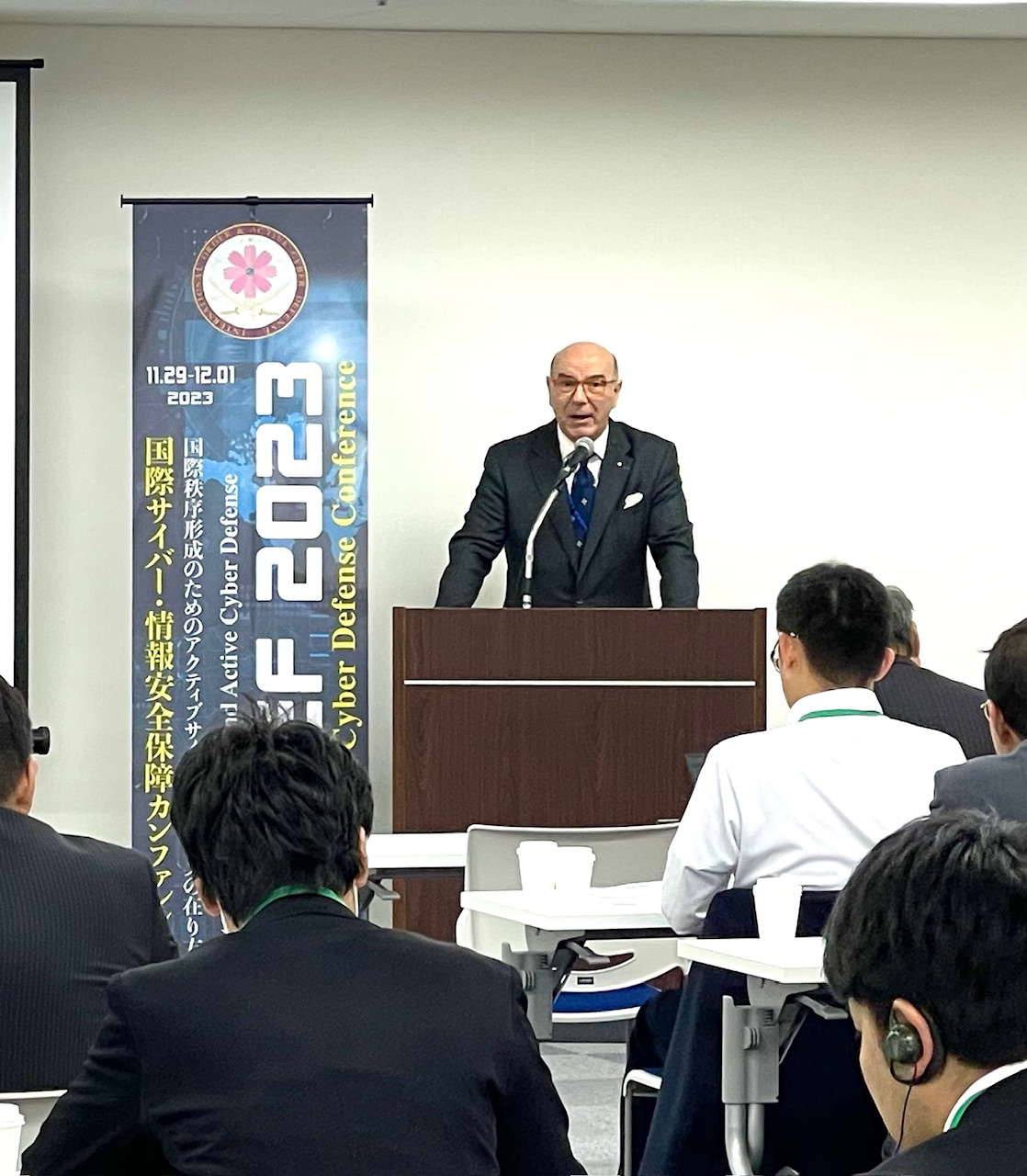 | 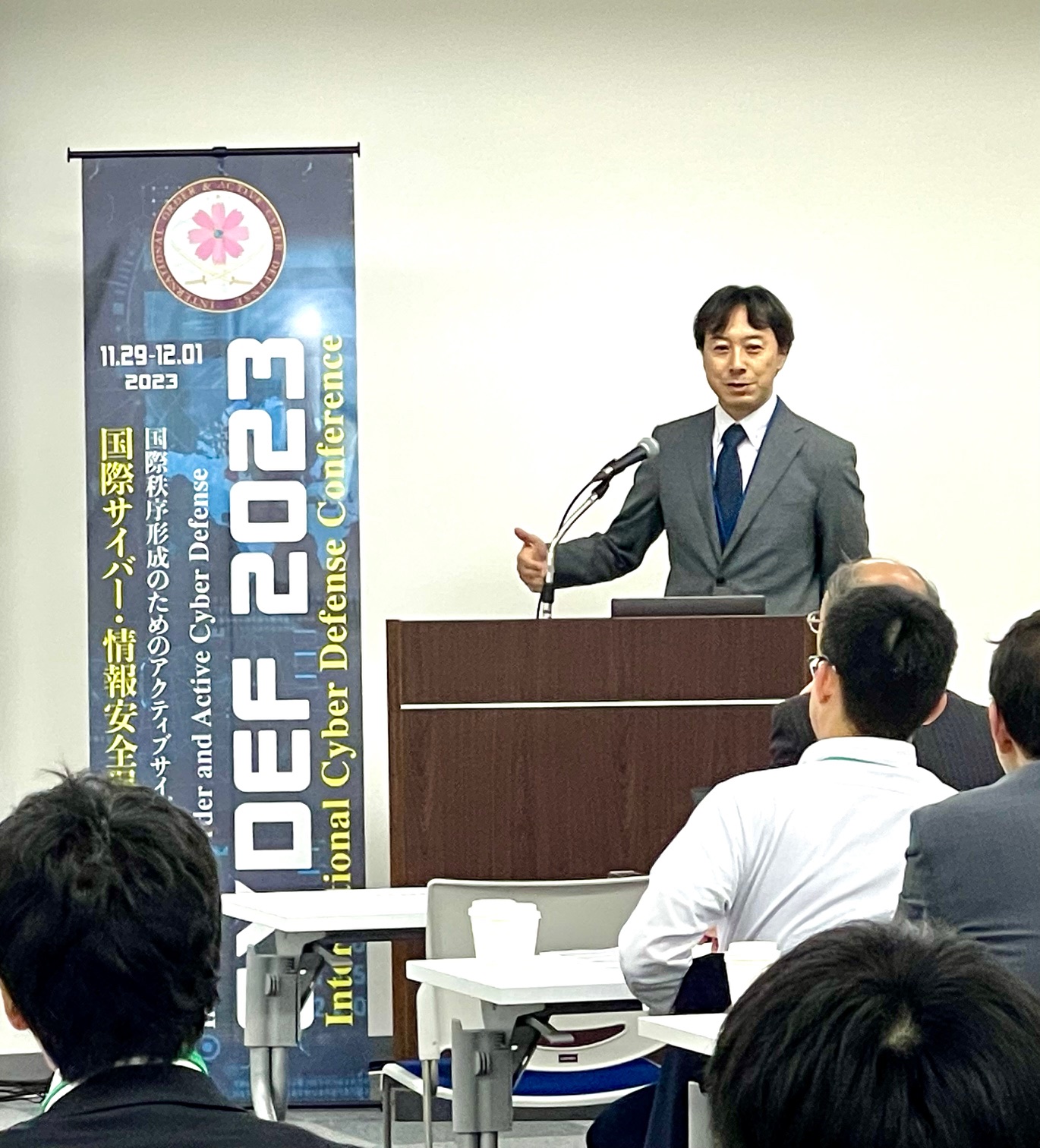 |
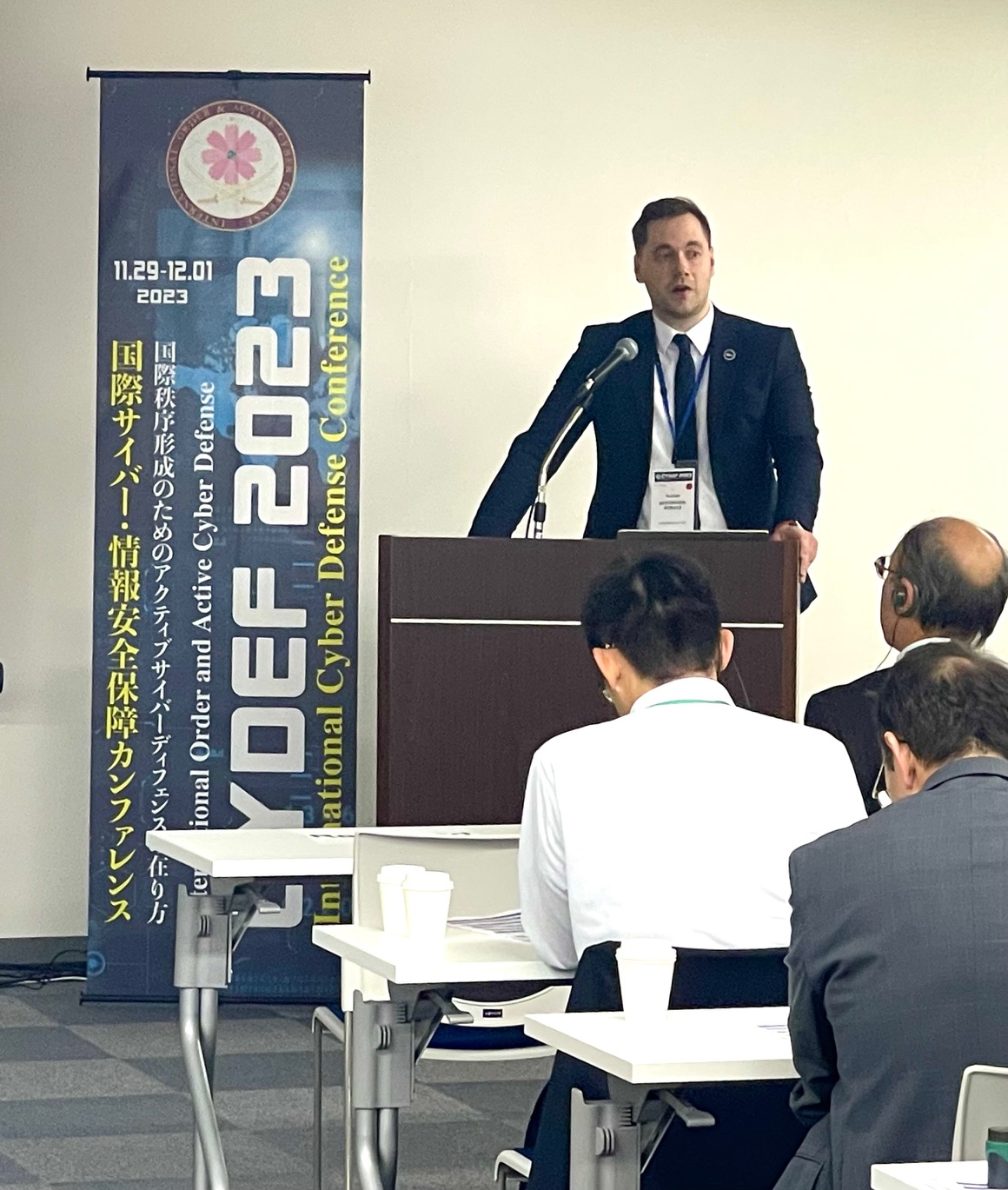 | 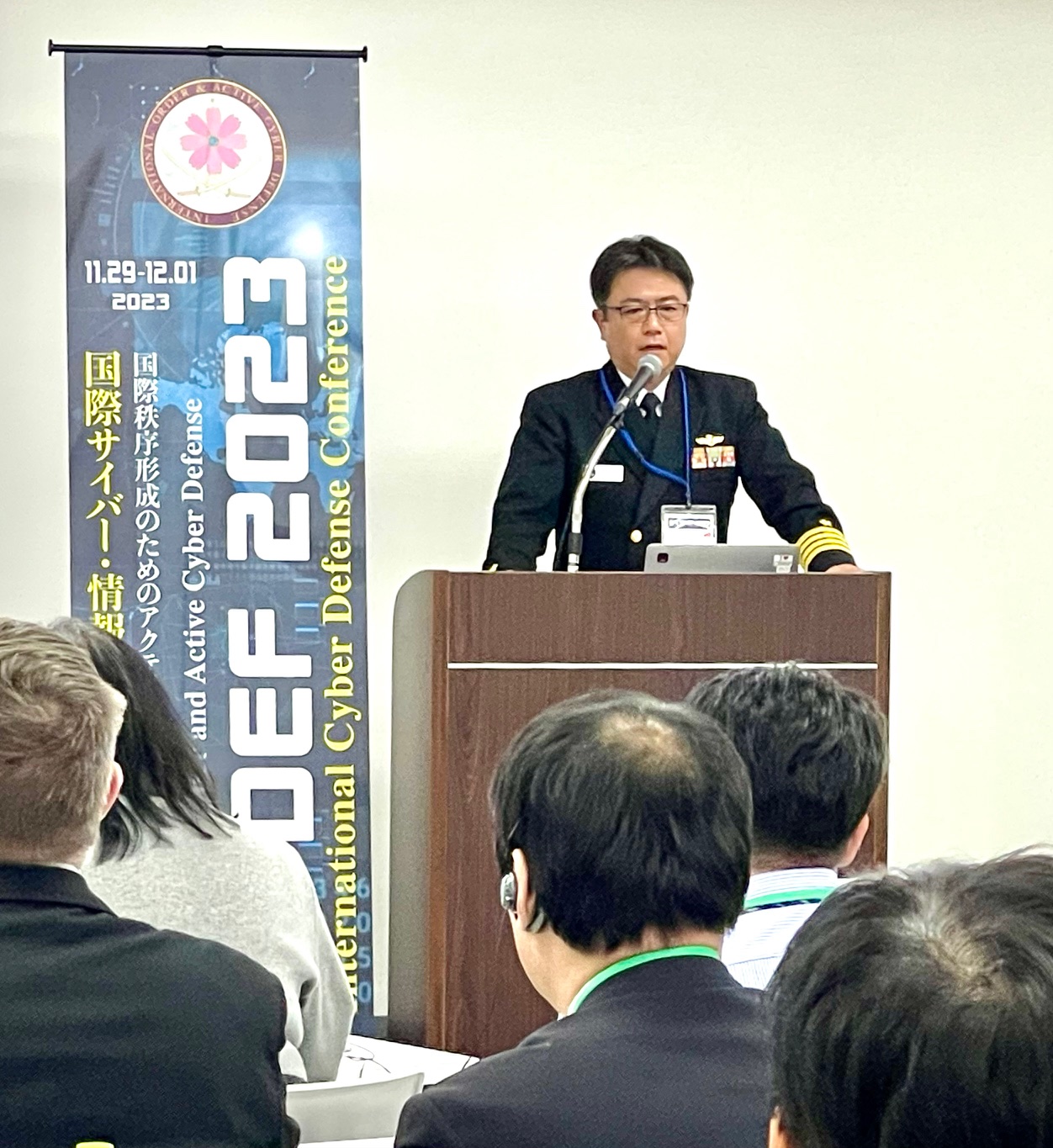 | 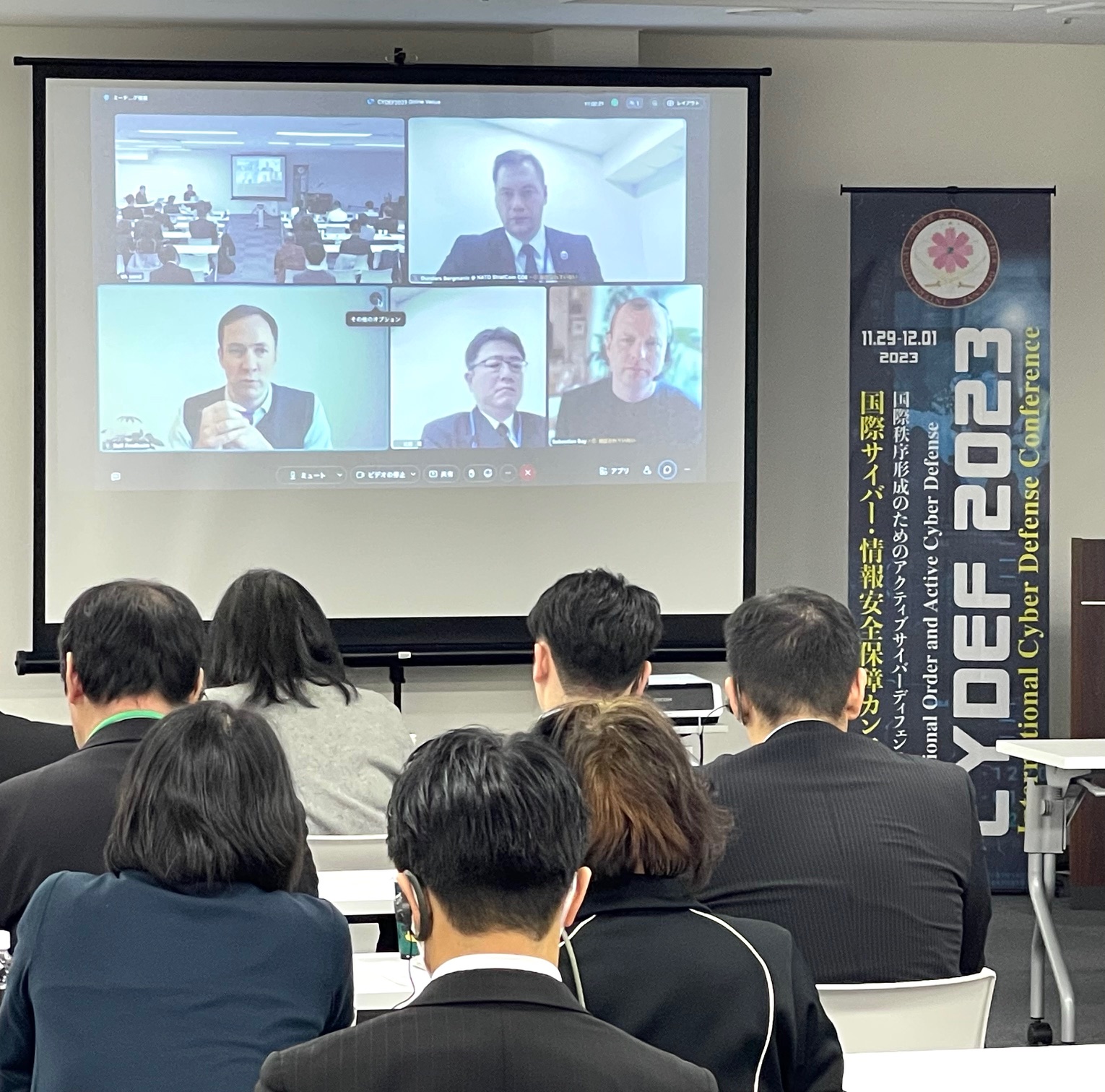 |
White Papers & Documents
The theme of this year’s CYDEF2023 is “International Order & Active Cyber Defense”. The reason why this keyword is attracting attention is that in Japan’s National Security Strategy released at the end of 2022, it is stated that “Japan must have the capability of active cyber defense to eliminate the threat of serious cyber attacks that may cause security concerns to the country or critical infrastructure, although they do not lead to armed attacks, or to prevent the spread of damage when such cyber attacks occur. However, the “Active Cyber Defense” is not a system to prevent cyber-attacks, but a system to prevent the spread of damage in the event of such cyber-attacks. However, the concept and methodology of Active Cyber Defense have not yet been clearly defined in Japan and other countries. In addition, discussions on cyber security should not be limited to mere technical issues, but should also cover national strategies and policies, international relations, laws, and other diverse perspectives. Therefore, as a reference material for this conference, this white paper summarizes the basic understanding of the cyber security situation and the background and discussion points of Active Cyber Defense being discussed in other countries and regions. We hope that the discussion at CYDEF2023 will be more meaningful by referring to this White Paper.
Note: This White Paper may be updated before the meeting starts.
What is CYDEF?
CYDEF is a forum where many people, transcending national boundaries and positions, come together for discussion in order to find the direction to take in a society where distance and boundaries are dissipating, transforming at an accelerated pace, and the future is becoming less clear with the development of information technology and the expansion of networks.
Launched in 2018 with the Science for Peace & Security Fund, the conference, now in its sixth year, has attracted ministers, cyber ambassadors, cyber commanders, ethical hackers, and researchers from Europe, the United States, and the Asia-Pacific region, including Japan, The conference has attracted approximately 250 speakers and 4,000 attendees, including ministers, cyber ambassadors, cyber commanders, ethical hackers, and researchers from Europe, the U.S., and the Asia-Pacific region including Japan.
Objective of CYDEF2023
CYDEF aims to disseminate information, share awareness, and establish collaboration.
Dissemination of information means to gather experts and knowledgeable people with various experiences and knowledge and providing a forum for them to present their opinions. This allows us to come into contact with new knowledge that we are not usually exposed to and to obtain hints for solving everyday problems.
Shared Awareness is about sharing awareness and gaining a foundation of understanding through presentations. This allows us to understand the common threats and work together to address them.
Establishing collaboration means understanding each other and building a common ground through presentations. This allows us to cooperate on common issues.
While listening to the discussions of experts and specialists worldwide, we hope to build a framework for mutual understanding and cooperation by presenting the same issues and approaches to them, even though we are from different countries and positions.
Theme of CYDEF2023
International Order and Active Cyber Defense
The main theme of this year’s CYDEF2023 is “International Order and Active Cyber Defense – How Active Cyber Defense Can Shape International Order.” As tensions in international relations intensify in Ukraine and other parts of the world, cyber threats are also rising. In this gray zone, where laws that form the cornerstone of order have not been developed, and where neither peace nor war is possible, what can be done to contain malicious activities without unnecessarily raising tensions?
To find a solution to this question, this year, in addition to our Organization for Cyber Defense Innovation, the Hybrid Center of Excellence (Hybrid CoE ), the NATO Cooperative Cyber Defence Center of Excellence (CCDCOE) in Estonia, the NATO Strategic Communications Center of Excellence (NATO StratCom) in Latvia, the NATO Command and Control Center of Excellence (NATO C2CoE) in the Netherlands, the Army Cyber Institute (Army Cyber Institute) in the USA will be invited to introduce researchers conducting related research and discuss the following session themes.
List of Panel Discussion Themes
- Multi-Domain Decision Making in Active Cyber Defense
- Operationalizing active cyber defence capability
- AI Frontiers in Multimodal Information Warfare
- Legal, Policy, and Partnership Challenges for Pacific Cyber Defenses in 2035
- The cyber and hybrid aspects of cognitive superiority
- Active Cyber Defense in Country‘s Cyber Strategy
| 1 | 2 | 3 | 4 | 5 | 6 |
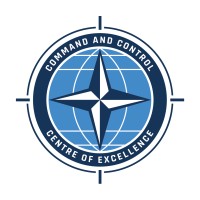 | 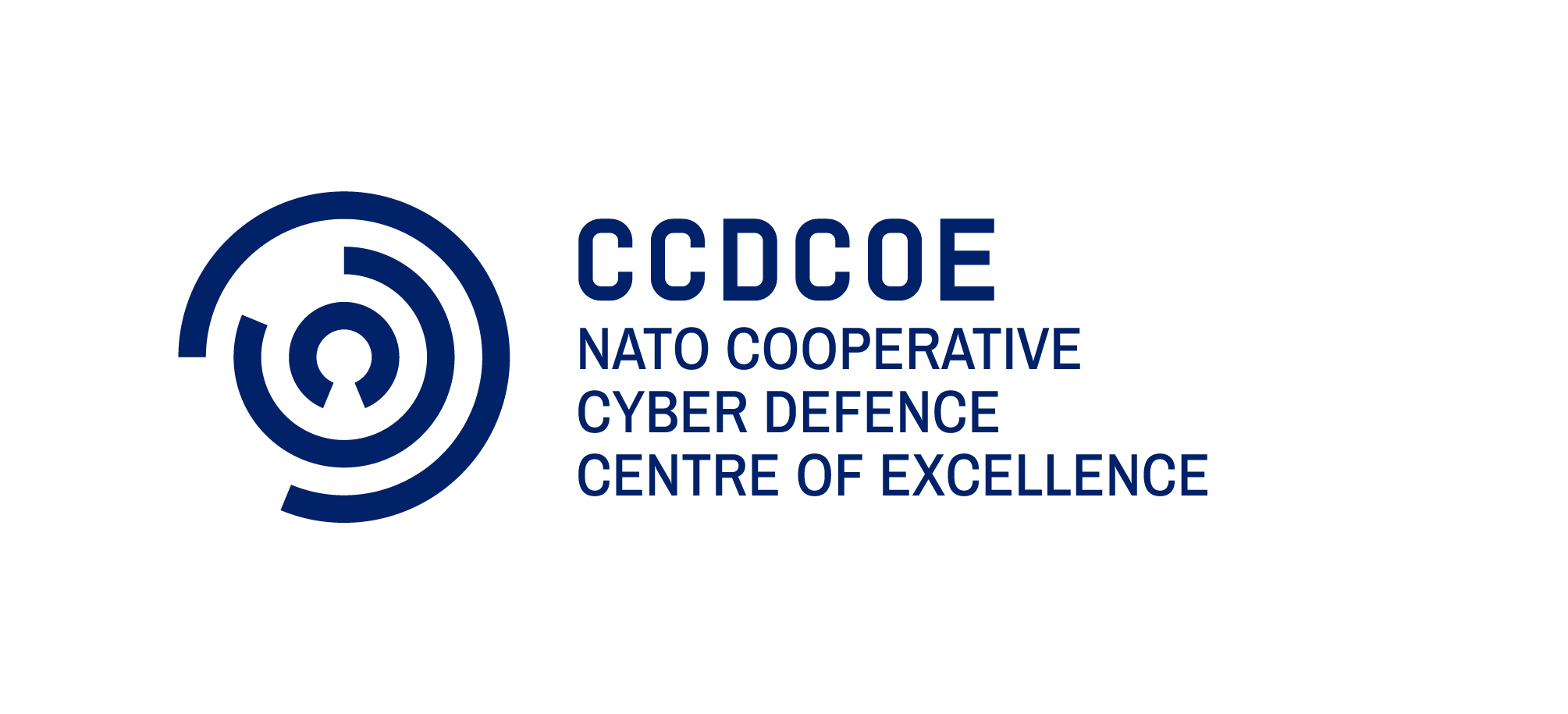 | 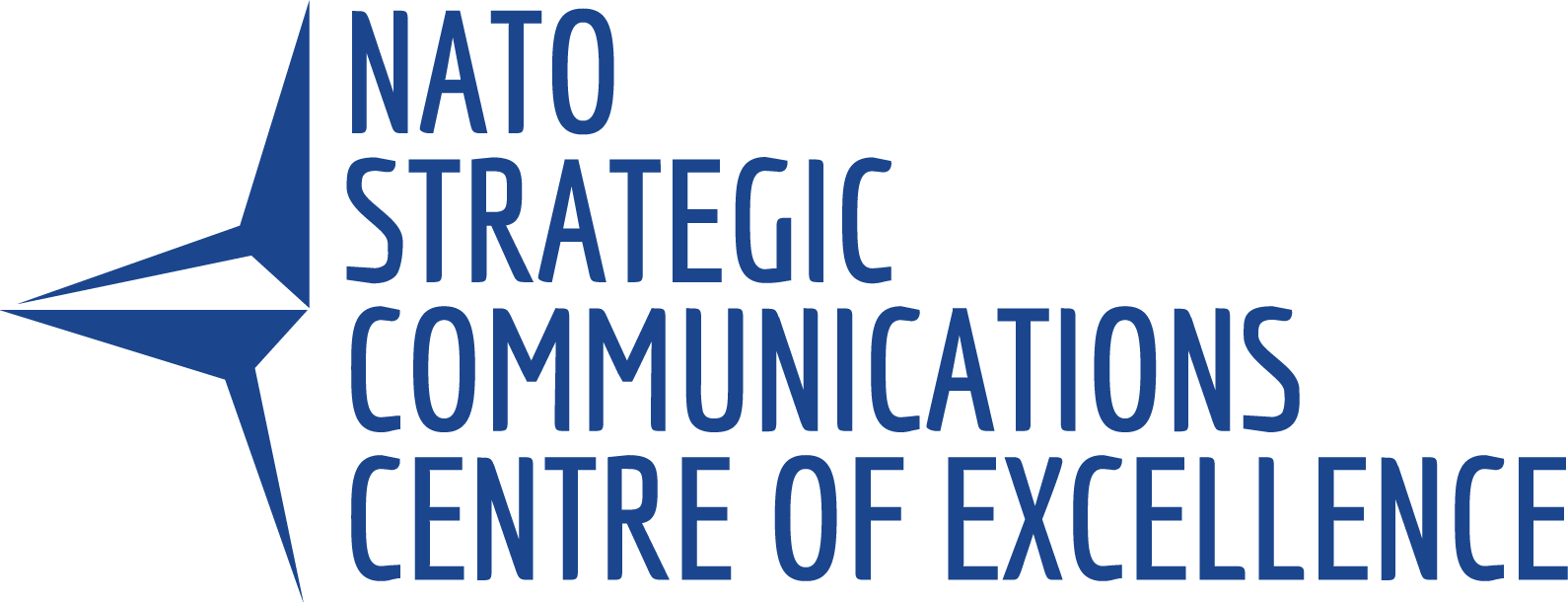 | 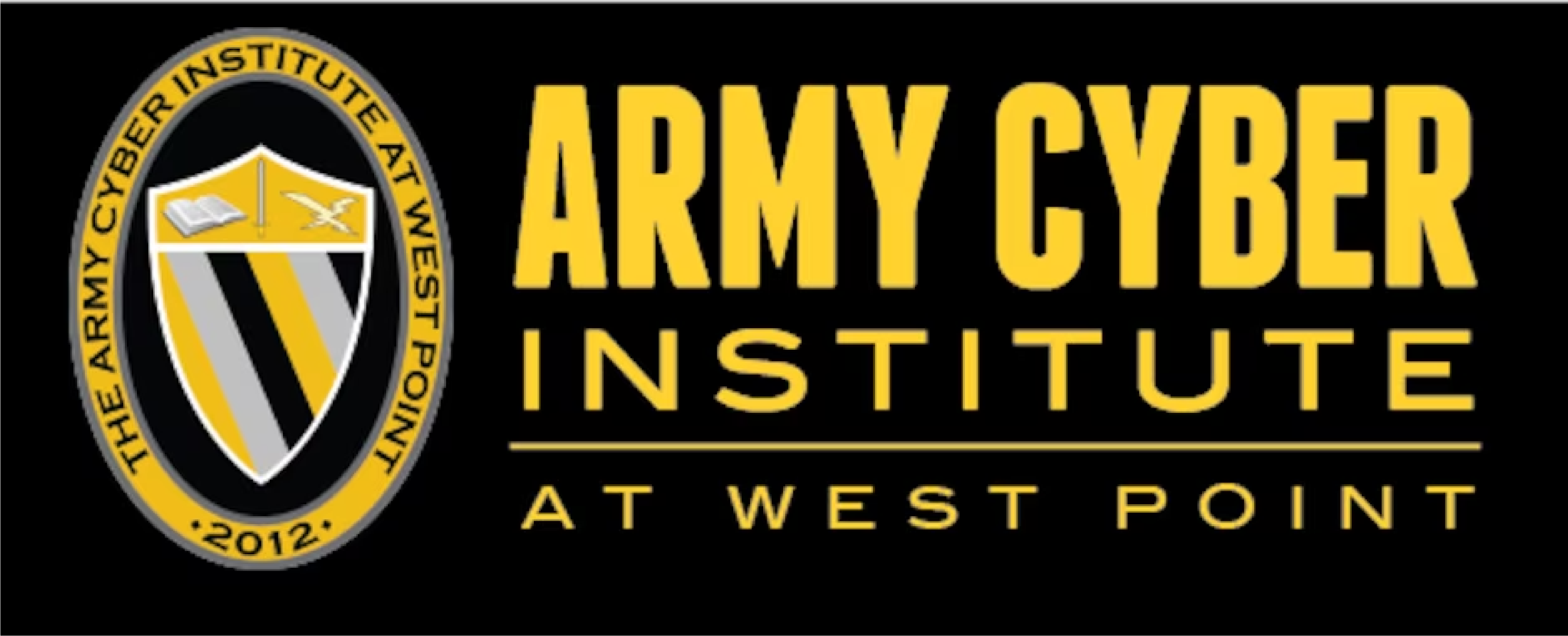 |  | 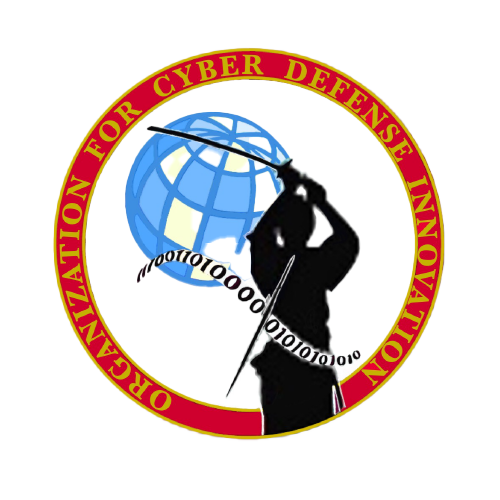 |
| NATO C2CoE | NATO CCDCOE | NATO StratCom | ACI | Hybrid CoE | CYDEF |
| Day1 09:45-11:15 | Day1 14:10-15:40 | Day1 17:30-19:00 | Day2 09:45-11:15 | Day2 12:30-14:00 | Day2 15:50-17:20 |
■Multi-Domain Decision Making in Active Cyber Defense (Time Table)
NATO C2CoE, Utrecht, Netherlands
Moderator:Dr./COL Mietta Groeneveld (NATO C2CoE)
In today’s interconnected world, cyber threats and incidents demand a comprehensive and collaborative approach to active cyber defense. Effective orchestration of information sharing, combined situational awareness, shared decision making and synchronization of mitigation measures across different private, public, police and military organizations pose challenges due to differing legal boundaries and varying command & control structures within these organizations.
The NATO Command & Control Centre of Excellence (C2COE) is proud to organize a panel discussion “Multi Domain Decision Making in Active Cyber Defense” at CYDEF 2023. This session will delve into the complexities associated with multi-domain decision making and explore innovative strategies to foster proactive cyber defense.
C2COE has invited distinguished panelists from the USA, Europe, Asia, and Japan who bring with them extensive regional expertise and profound experience in addressing these challenges. By sharing their insights and knowledge, the panelists will shed light on region-specific nuances and best practices, enriching the discussion with diverse perspectives.
This exclusive panel discussion organized by the NATO Command & Control Centre of Excellence (C2COE) offers a unique opportunity to engage with esteemed experts and thought leaders. By participating in this session, you will acquire actionable knowledge and valuable lessons that can strengthen your organization’s cyber defense posture.
■Operationalizing active cyber defence capability (Time Table)
NATO CCDCOE, Tallinn, Estonia
Moderator:Ms. Tomomi Moriyama (CCDCOE)
Active cyber defense is not a novel concept. US DoD strategic document already spoke about it in the early 2010s, in emphasizing the necessity of employing measures to detect and halt malicious activity before it could affect their networks and systems. There is no universally agreed definition for what constitutes active cyber defense (and therefore a general noun starting with a lowercase letter), and its scope of activity varies and could mean anything outside traditional passive defense, be it cyber threat intelligence or offensive cyberspace operations. Different approaches to active cyber defense come with different implications.
This panel session will aim to bring the discussion on active cyber defense beyond its conceptual level and focus on practical implications and potential challenges when the concept is operationalised on the ground. The panel will bring together subject matter experts with professional first-hand experience in strategic and policy planning, cyber operations command, redteaming, and/or as a legal advisor. Each panel member will look at active cyber defence-oriented policies and activities from their distinctive areas of expertise and give practical accounts on its advantage, effect, complexity, policy/legal/operational/technical considerations, implications for cyber workforce development, etc. Sample topics to explore could include the following, subject to consultation with the panel members:
- Comparative national approaches to active cyber defense
- International law applicable to offensive cyberspace operations and some fictitious cases
- Considerations in integrating active cyber defense approach in military operations
- Exercise, redteaming, and cyber workforce development
- A framework for multinational cooperative active cyber defense
- A benchmark for evaluating and measuring national cyber capabilities?
To let the audiences be part of the discussion, the presentations will be followed by a short, mini tabletop exercise. Some exemplar cases and questions cyber professionals or decision-makers may face in operationalising active cyber defense will be presented by the panel. Audiences will be encouraged to participate in the tabletop exercise via a web-based real-time interactive tool (e.g. Mentimeter) if feasible and share their thoughts.
■AI Frontiers in Multimodal Information Warfare (Time Table)
NATO StratCom, Riga, Latvia
Moderator:Mr. Gundars Bergmanis-Korats (NATO StratCom)
The upcoming panel discussion, “AI Frontiers in Multimodal Information Warfare,” will delve into the growing significance of AI in modern warfare, specifically focusing on its role in Strategic Communications.
Recognizing that warfare is increasingly a cognitive endeavor, the function of Strategic Communications has become critical as it bridges cognitive effects with kinetic activities. In this landscape, recent advancements in AI technology stand out for their capacity to influence both the information environment and how information is consumed. During the initial part of the panel discussion, experts will discuss how AI is employed to generate and disseminate information and propaganda, particularly through manipulation techniques on social media. Following this, the conversation will transition into an examination of the transformative potential of generative AI in Strategic Communications, viewed from a defender’s perspective. This will cover both the opportunities and risks involved and will set the stage for a debate on appropriate policy measures that might mitigate these risks. To conclude, the panel will evaluate the future role of AI in strategic communications, considering whether AI will supplement or potentially replace human-led initiatives. The ultimate aim of the panel is to foster an informed dialogue among professionals from various fields, with the goal of deepening understanding of the complex challenges and opportunities that AI introduces in the sphere of information warfare.
■Legal, Policy, and Partnership Challenges for Pacific Cyber Defenses in 2035 (Time Table)
Army Cyber Institute, ACI, West Point, USA
Moderator:Dr./LTC Jason C. Brown (ACI)
(Objective): This panel seeks to explore and analyze the evolving landscape of cyber threats in the Asia-Pacific region and how the United States and its democratic allies/partners (Japan and the Republic of Korea) can effectively enhance their integrated deterrence capabilities. With a focus on both public/open cyber threats and operations within the “gray zone,” the panel will evaluate the current and anticipated state of cyber defenses in various sectors and discuss policies for bolstering security in the face of changing cyber-operational dynamics.
(Background): Building upon the concept of ‘integrated deterrence’ from the U.S. National Defense Strategy, this panel aims to operationalize international partnerships as outlined in the 2018 Department of Defense Cyber Strategy. In the spirit of the Third Offset, the discussion will delve into not only technological advancements but also the operational and organizational constructs that can revolutionize the character of cyber warfare. The panel acknowledges the unique challenges posed by the cyber domain’s infancy and the absence of an organization akin to NATO in the Asia-Pacific region.
(Key Areas of Focus): Legal and Policy Friction: By examining the operational and organizational aspects of cyber partnerships, the panel aims to provide a comprehensive assessment of current legal and policy points of friction hindering the effectiveness of combined cyber defense between the U.S. and Indo-Pacific allies and partners.
Organizational Empowerment: The panel also seeks to compare and contrast the different ways that the US and Indo-Pacific allies and partners are organizing and empowering their defensive cyber military forces. This includes examination of capabilities, constraints, and potential synergies among the allies/partners, such as the U.S. National Guard State Partnership Program. The goal is to identify areas for collaborative improvement.
Understanding Threats: The panel will avoid narrow discussion on specific cyber threats within the region and instead attempt to shed light on emerging activities within the gray zone that cut across societies and touch legal/policy spheres. This understanding is essential for developing targeted deterrence strategies.
(Expected Outcomes): This panel will provide valuable insights for policymakers, military strategists, academics, and cybersecurity professionals. Ultimately, the panel’s findings will contribute to the realization of integrated deterrence in the Pacific region and the effective operationalization of cyber partnerships among the democratic allies/partners.
■The cyber and hybrid aspects of cognitive superiority (Time Table)
Hybrid CoE, Helsinki, Finland
Moderator:Dr./COL Josef Schroefl (Hybrid CoE)
The increasingly widespread use of social media, social networking, social messaging, and mobile device technologies now demands a different approach to warfare –one in which the cognitive domain maybe has to be included. A form of warfare that can even target individuals’ cognitive processes represents a radical deviation from traditional forms of warfare, which aim, in principle, to exclude civilians.
In cognitive warfare, known as reflexive control in Russia, the citizen is the target and their brain becomes a part of the battlefield. It changes not only the international order, but also the nature of warfare, the actors, the duration, and the way a war can be won. Cognitive superiority questions the ideas of tactics (winning a battle) and strategy (winning a war), as well as underlying timelines. This form of superiority can include campaigns launched over the course of decades, as we have seen in Russia with the idea of smearing Ukrainians as “Nazis” over the last 20 years. China, for its part, thinks that it will be possible to influence the enemy’s brain to affect human cognition directly. Doing so creates the possibility of subduing the enemy without a fight, either by technical or informational means. On the other hand, the Russian reflexive control philosophy focuses primarily on the area of conflict, with the goal being to weaken the enemy state from inside. It states that cognitive superiority is conducted around and during armed conflicts. NATO’s philosophy was summarized by Major General Robert H. Scales: “Victory will be defined more in terms of capturing the psycho-cultural rather than the geographical high ground.” Western cognitive warfare concepts are furthermore bound by law and ethics whereas the Russian and Chinese implementations practically know no bounds.
With big pleasure, the European Center of Excellence for countering Hybrid Threats (Hybrid CoE) will organize a panel discussion “The cyber and hybrid aspects of cognitive superiority” at CYDEF 2023. This session will delve into the relationship between hybrid warfare and cognitive threats from the cyber defense point of view.
Hybrid COE will invite distinguished key-note speaker as well as panelists from Canada, Europe, Australia and Japan who bring with them extensive regional expertise and profound experience in addressing these challenges. By sharing their insights and knowledge, the panelists will shed light on region-specific nuances and best practices, enriching the discussion with diverse perspectives. We will discuss, for example, the roles of artificial intelligence and quantum computing in cognitive warfare, possible countermeasures, and the potential need for an additional concept of cognitive defense to counter info, psychological and cyber elements as a part of hybrid defense.
■Active Cyber Defense in Country‘s Cyber Strategy (Time Table)
CYDEF, Tokyo, Japan
Moderator: Dr. Masakazu Furuichi(Organization for Cyber Defense Innovation, Nihon University)
Today, the Internet connects the world, with more than half of the world’s population using the Internet. However, even though the distance and boundaries that separate people have disappeared virtually, in reality, each country has different social systems, economic conditions, and cultural and geopolitical environments, and seems to have different policies in place. Each country’s cybersecurity strategy explicitly demonstrates this.
At the beginning of the 21st century, governments have begun to develop strategies for the cyber domain in addition to their traditional ones. Some countries have moved from merely defensive policies to more proactive ones, given the nature of cyber threats and their increasing threats, in which attackers have the upper hand.
So what are the differences and similarities in the responses of countries that use the Internet and are exposed to similar threats, but have different backgrounds and various constraints? It will be useful to clarify these differences and similarities in order to consider future countermeasures.
In this panel discussion, we will invite speakers from different regions to discuss what is behind the policies and strategies implemented in the cyber domain in their respective countries, what kind of measures they are taking for active cyber defense, and what are the expected outcomes and impacts of these measures.
With the disappearance of distance through the Internet, the advantage of being an island nation has disappeared, and we are confronted not only with direct criminals but also with cyber warriors.
Presenters
*Appearance order
*Orange: greetings, Blue: Keynote speech, Red: Panel discussion moderator, Purple: Panelists, Green: General presenter
*Profile in English will be available soon
Date and Time
- Nov. 29 (Wed) – Dec. 1 (Fri), 2023
- Day1: Nov. 29(Wed) 09:00-19:05
- Day2: Nov. 30(Thu) 09:00-17:25
- Day3: Dec. 1 (Fri) 09:00-12:00 ※Wrap-up session
| (tentative) | Day1 Nov. 29(Wed) | Day2 Nov. 30(Thu) | Day3 Dec. 1(Fri) |
|---|---|---|---|
| 08:00-09:00 | Registration | Registration | Registration |
| 09:00-09:05 (5min) | Opening | Opening | Opening |
| 09:05-09:35 (30min) | Keynote speech #1 | Keynote speech #2 | 09:05-10:35 Wrap-up session |
| (10min) | |||
| 09:45-11:15 (90min) | Panel discussion #S1-1 | Panel discussion #S2-1 | 10:35-10:45 break |
| 11:15-12:30 (75min) | break | break | 10:45-11:45 Bridging to the future <closed session, members and premium attendants only> 11:45-11:50 Closing |
| 12:30-14:00 (90min) | Presentation #S1-2 | Panel discussion #S2-2 | |
| (10min) | break | break | |
| 14:10-15:40 (90min) | Panel discussion #S1-3 | Presentation #S2-3 | |
| (10min) | break | break | |
| 15:50-17:20 (90min) | Presentation #S1-4 | Panel discussion #S2-4 | |
| (10min) | break | ||
| 17:30-19:00 (90min) | Panel discussion #S1-5 | 18:00-20:00 Networking Reception at Shinagawa Prince Hotel (Invited persons only) |
Venue
- On-site and on-demand view of recorded video
- Venue:Vision Center Shinagawa, Tokyo
- Access to the venue: 3 minutes walk from JR or Keikyu Shinagawa Station
- Address: 4-10-8, Takanawa, Minato-ku, 108-0074, Tokyo, Keikyu-7th Building, 2F and 3F (entrance is 3rd floor) Vision Center Shinagawa
- Please browse the Google map below using your language, the default is Japanese mixed with English.
Registration fee
【On-site】
Regular 30,000JPY,Academia/Government 15,000JPY,Student 5,000JPY
※ALL attendants, including Invited guest, has to register for the conference.
【On-demand】
Regular 10,000JPY,Academia/Government 5,000JPY,Student 1,000JPY,Invited guest (who holds invitation code) FREE,Member (of Organization for Cyber Defence Innovation) FREE
※ALL on-demand attendants, including Invited guests, have to register for the conference.
Organizers
Host Organization
- Organization for Cyber Defense Innovation (formerly known as Cyber Defense Study Group)
Subsidy Fund
- Ministry of Defense
- Watanabe Found
- Planning Committee for Nippon Institute for Advanced Study of Technology
Sponsors (Platinum)
- NTT Security Holdings Corporation
- NTT Communications
Sponsors (Gold)
- BAE Systems Digital Intelligence
- Hitachi, Ltd.
- Deloitte Tohmatsu Cyber LLC
Sponsors (Silver)
- KELA Group Japan
- Amazon Web Services Japan G.K.
- Fujitsu Ltd.
Sponsors (Bronze)
- Cognite Software, Ltd.
- Kozo Keikaku Engineering, Inc.
- Yokosuka Maritime and IT Education Association
- Yokosuka Research Park, Inc.
- FFRI Security, Inc.
Sponsors (Partner)
- NRI SecureTechnologies, Ltd.
- Tokyo Marine dR Co., Ltd.
- Braze East Inc.
- Dai Nippon Printing Co., Ltd.
- Sola.com Co., Ltd.
- Splunk Services Japan G.K.
- SAKASE ADTECH CO., LTD.
- Nihon Cyber Defence Co., Ltd.
- Macnica, Inc.
- The Computing Technology Industry Association, CompTIA Japan
- J-MEC
- Yamato Consulting and Research Group
- Anchor Technologies, Inc.
Support Organizations (Government, Groups and Local Government)
- Ministry of Defense
- Ministry of Foreign Affairs of Japan
- Ministry of Economics, Trade and Industry
- Ministry of Internal Affairs and Communications
- Ministry of Education, Culture, Sports, Science and Technology
- National Center of Incident Readiness and Strategy for Cybersecurity
- National Police Agency
- Digital Agency
- Council for Public Policy
- Japan Society for the Promotion of Machine Industry, Economic Research Institute
- CRIC Security Quality Committee
- National Research Institute for Earth Science and Disaster Resilience
- Yokosuka City
Support Organization (Embassys in Japan,Alphabetical Order of Nations)
- Embassy of the Kingdom of Belgium in Tokyo
- The British Embassy Tokyo
- Embassy of the Czech Republic in Tokyo
- Deutsche Auslandsvertretungen in Japan
- Embassy of Estonia Tokyo
- Embassy of Italia in Japan
- Embassy of the Republic of Lithuania in Japan
- United States Embassy
- Embassy of Israel in Japan
Support Labs(Alphabetical Order of Lab names)
- Center for Cybersecurity Research and Education, School of Computing, Tokyo Institute of Technology
- EGMONT – The Royal Institute for International Relations
- National Graduate Institute for Policy Studies (GRIPS)
- Institute of Information Security
- NATO Command & Control Centre of Excellence (NATO C2COE)
- NATO Cooperative Cyber Defence Centre of Excellence(NATO CCDCOE)
- NATO Strategic Communication Centre of Excellence(NATO StratcomCOE)
- Royal United Services Institute for Defence and Security Studies
- The European Centre of Excellence for Countering Hybrid Threats (Hybrid CoE)
- Army Cyber Institute (ACI, USA)
Organizing Committee (Alphabetical order)
- Executive Committee Chair : Mr. TAKAMIZAWA Nobushige, Visiting Professor, The University of Tokyo
- Executive Committee Vice Chair : Dr. MAJ(ret) TOKITO Kazuo
- Dr. FURUICHI Masakazu, Professor, Nihon University
- Dr. CAPT(ret) IDE Tatsuo, Planning Committee for Nippon Institute for Advanced Study of Intelligence
- Mr. IWASAKI Kai
- Dr. MIYAKE Ko, Fellow, NTT DATA INTELLILINK Corporation
- Dr. NAKAMURA Yuichi, SoftBank Corp.
- Mr. NORIFUSA Masaya, Advisor, Cyber Risk Information Center
- Mr. OGUMA Keiichiro, ISC2
- Ms. SASAKI Chihiro, CYBERGYM JAPAN
- Mr. TAKAHASHI Yusuke, Director, Sales, Networks Company, Macnica,Inc.
- Dr. YANO Yoshiaki, Invited Professor, Gifu Momen’s University
- Mr. YOSHIMURA Katsuyasu, NTT DATA INTELLILINK Corporation
Program Panel Committee
- Dr. Gundars Bergmanis-Korats, Chief Scientist, NATO Strategic Communication COE
- Dr. LtCol. Jason C. Brown, Army Cyber Institute(United States of America)
- Dr. FURUICHI Masakazu, Professor, Nihon University / Organization for Cyber Defense Innovation (Japan)
- Dr. Capt(ret) IDE Tatsuo, Planning Committee for Nippon Institute for Advanced Study of Intelligence / Organization for Cyber Defense Innovation (Japan)
- Dr. IKEGAMI Jyusuke, Professor, Waseda University / Organization for Cyber Defense Innovation (Japan)
- Dr. KUWANA Eiji, NTT TechnoCross Corporation/ Organization for Cyber Defense Innovation (Japan)
- Ms. MORIYAMA Tomomi, NATO Cooperative Cyber Defense COE(Estonia)
- Dr. Maj. Stefan Nelman, NATO Command & Control COE(Netherlands)
- Dr. Col. Josef Schroefl, EU/NATO Hybrid COE(Finland)
- Mr. TAKAMIZAWA Nobushige, Professor, Tokyo University / Organization for Cyber Defense Innovation (Japan)



